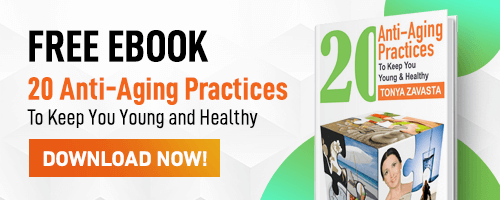Best Practices to Improve Your Vision and Prevent Age-Related Decline
Published: (October, 2025)
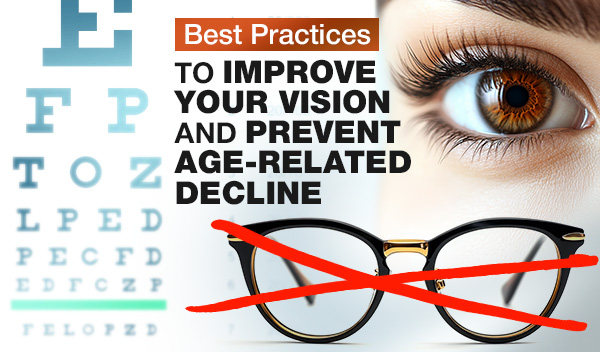
1. Wearing Glasses Less—Can It Help?
The motivation for this newsletter came from this email:
I am noticing that my vision is not as good as it should be. I have been a raw foodist for 18 years now and have been taking supplements for my eyes for years. Any suggestions that may help.
As always I can only share my personal experience.
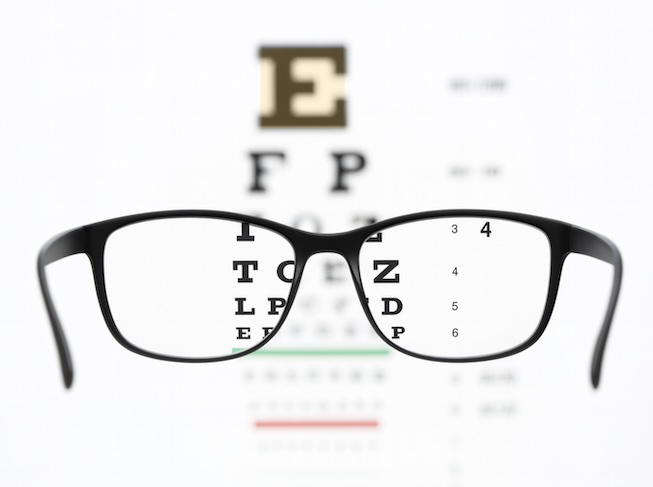
I remember that at age thirteen I was taken to an eye doctor and diagnosed with mild myopia: –2.00 diopters (D) in both eyes. I was given my first prescription, and that same year, during our vacation in Hungary, my mother bought me a very nice frame for my first pair of glasses.
In the year 2018, 47 years later, I passed the vision test at the Department of Motor Vehicles (DMV) for a new driver's license with the very same glasses. These days, 55 years later, I use the same strength glasses for driving only, and never use them for anything else. And I read small print without any problem.
It's well known that once a person begins wearing glasses, the strength of their prescription almost inevitably needs to be increased over time in order to maintain the same level of vision achieved with the first pair.
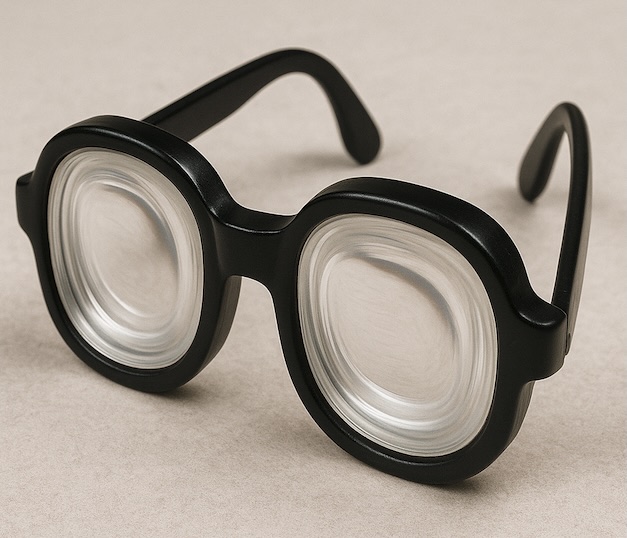
This was exactly what I observed in my father. Over the years, I watched the lenses in his glasses grow progressively thicker with each new prescription until, before his passing, he was practically blind. I’ve seen the same pattern—lenses getting thicker with time—in several of my acquaintances as well.
How did I manage to avoid their decline—and even improve my vision? The truth is, it began with nothing noble—just pure vanity. As a teenager, I was already self-conscious enough about having a limp. Glasses, I decided, would only add to my burden. So I refused to wear them.

At school, the front row became my refuge. I’d plant myself at the middle desk, straining to see each chalk mark on the blackboard.
That habit became a way of life. Through high school, into my graduate and postgraduate studies in engineering, and later, after we came to the United States while I worked on my Master’s degree in Theoretical Mathematics—I always sat at the front. Always peering closely. And through it all, not once did anyone see me in glasses.
In 1991, we came to America. I was living on fast food, gaining weight, and my health began to deteriorate. Soon I found myself needing glasses for reading, watching TV, and working on the computer. Then, several years later, came the turning point. I discovered raw foods—and everything began to change. As I immersed myself in health-promoting practices, I came across the book Relearning to See: Improve Your Eyesight Naturally. In it, I read: “Still, many people have found that their vision improves by wearing glasses less.” From that day, I decided: no more glasses—except for driving. After all, my driver’s license required it.
Another thing I learned from this book was the importance of regular eye exercises and how they can gradually improve your vision.
2. Improve Your Vision Naturally
Can you improve your vision with eye exercises? If you type this question into a search engine, AI will tell you, “No.” Yet the book I mentioned earlier makes a scientific case that you can improve your eyesight naturally—and that eye exercises play a major role.
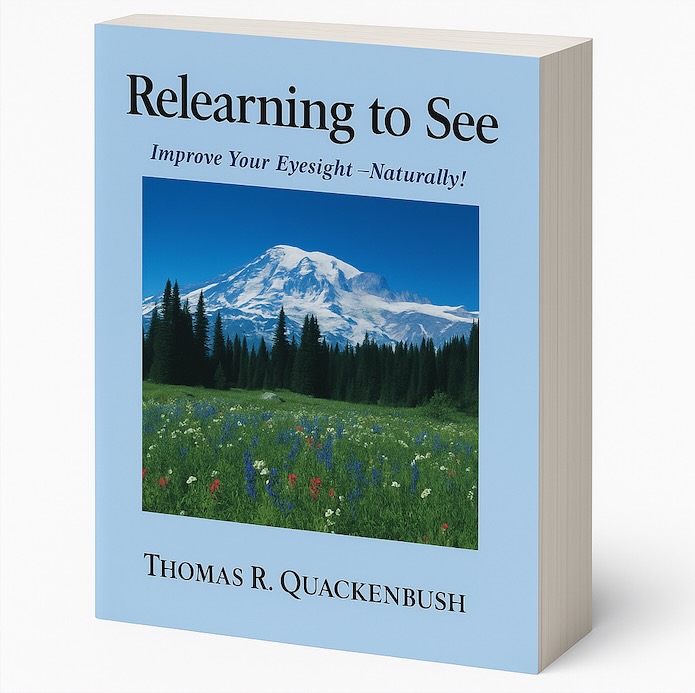
Relearning to See: Improve Your Eyesight Naturally is considered one of the best books explaining what’s known as the Bates Method, an in-depth exploration of how the principles of natural vision work.
The book takes a holistic view, encouraging small, everyday habits—blinking, shifting, palming—that keep your eyes and neck relaxed and help restore clear vision naturally, without glasses or surgery.
The correspondent quoted at the beginning of this newsletter is evidently speaking about age-related decline. My advice would be to explore eye exercises.
I’m a big believer in eye exercises. Keep in mind, fully restoring my myopia would require more effort than I’ve devoted to it—I’ve had other priorities. But even simple eye exercises can help delay or prevent the need for reading glasses as you age. They’re definitely helping me.
There are many charts on the internet with excellent eye exercises—some of them quite sophisticated. I haven’t tried those. Here, I’m showing only the very simple ones—the ones I do every day, 10 times each.
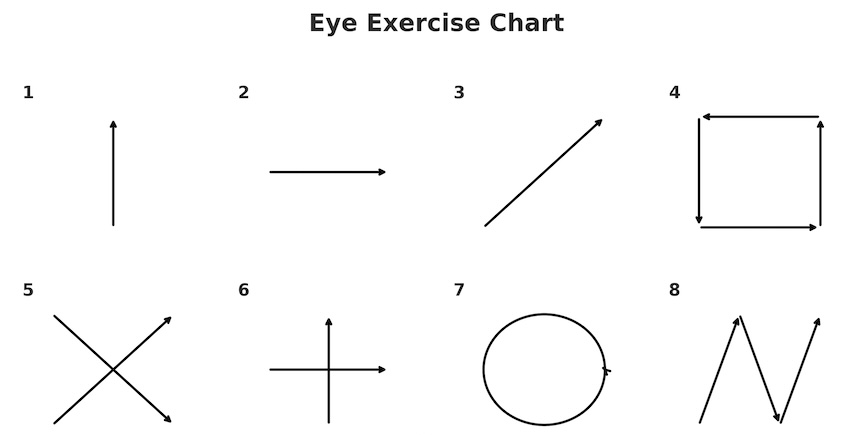
As we age, the tiny capillaries in our eyes gradually lose density and flexibility, and their walls may thicken—reducing the flow of oxygen and nutrients to the retina. Improving circulation can help counteract these age-related changes and support healthier eye function.
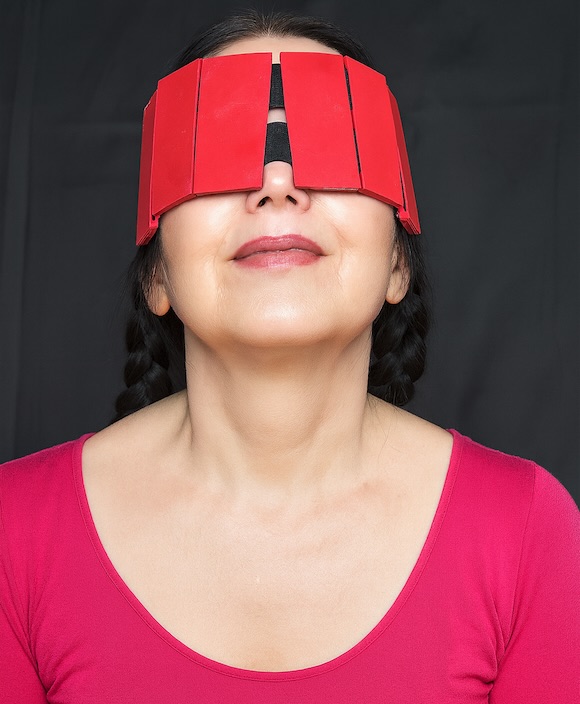
Some of you already have the RejuvaRoll and RejuvaPad. Our new product, the RejuvaBelt, works on the same principles but can be used anytime, anywhere on the body. The RejuvaBelt is a versatile tool designed to deliver stimulation and rejuvenation exactly where it’s applied.
How it works:
Contact with the skin triggers micro-stimulation, ion exchange, and improved circulation—promoting overall wellness.
The unique plate-and-belt design allows use on multiple zones:
Scalp – Boost circulation and promote hair growth.
Neck – Improve skin tone, help prevent sagging, and support a youthful appearance.
Around the Eyes – Place gently over closed eyes to stimulate receptors and refresh tired eyes. By improving circulation, we help nourish and rejuvenate the eye’s vital structures. Begin with a few minutes and see how it feels.
How to clean it: Wash with soap and warm water, then leave it out to air dry.
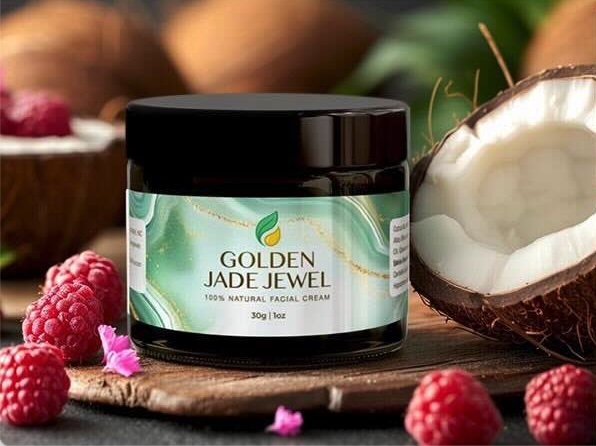
I love creating new creams with unique, uncommon ingredients. This time, I was inspired by the remarkable rejuvenating properties of Tamanu Seed Oil, Gotu Kola, and Yarrow Oil. Meet my latest creation: Golden Jade Jewel Cream—completely free of perfumes or added scents, and excellent for use as a night cream or for facial cupping.
Tamanu seed oil acts as a natural moisturizer, promoting healing by boosting collagen production and supporting cell regeneration.
Gotu kola contains antioxidants and triterpenes that help protect the skin from free radical damage while reducing the appearance of wrinkles and fine lines.
Yarrow oil, extracted from the Achillea millefolium plant, has been cherished for centuries for its soothing and restorative effects. Rich in anti-inflammatory, antioxidant, and antimicrobial compounds, it helps revitalize the skin and promote a healthy, balanced complexion.
